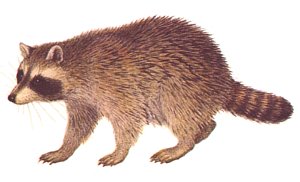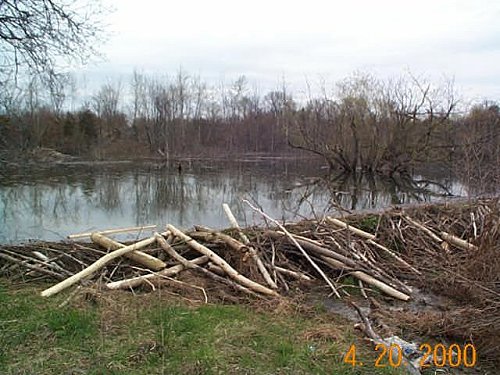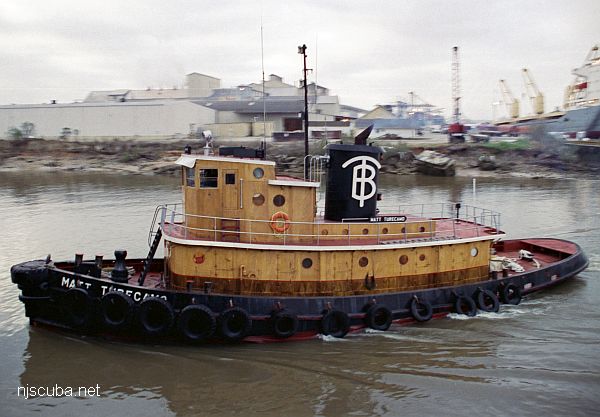Raccoon

Procyon lotor
( literally: pre-dog washer )
Size: 3 ft ( total length )
Habitat: around water
Notes: Raccoons are not really aquatic. They like to live around water so that they can dunk their food. Maybe they're washing it, or maybe they just like wet food, but they will use any water that is handy - a birdbath, swimming pool, or dog dish will do in a pinch.
So what is Procyon lotor doing here? Well, this is my favorite backyard critter, and it's my website. Raccoons are intelligent and mischievous. They can break into your garage and leave paw prints all over the ceiling. ( How? ) They can hold and manipulate objects in their little five-fingered hands, which have little thumbs almost like our own. Unlike most animals, raccoons are heel-walkers, like humans, which gives them a comical ambling gait. Young ones are quite adept tree climbers, and I have seen whole families up in the branches dining on sweet berries. Unfortunately, rabies introduced from the south has decimated the local bandit population, and they are only now beginning to make a comeback.

I believe that when we are gone, raccoons will inherit the earth ( because dogs will die out with us, possums are too stupid, and cats don't care. ) I can imagine what the future raccoon archaeologists will say as they dig up New York City: "These hairless apes built a remarkable civilization, but then they all died out. Probably because they didn't wash their food in the creek before they ate it."


